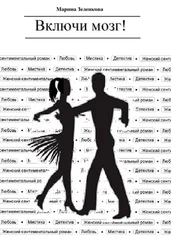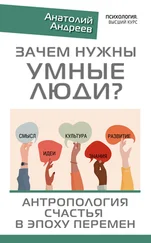Chase, W. G., and H.A. Simon. “Perception in Chess.” Cognitive Psychology 4 (1973): 55–81.
Cohn, D’Vera, Paul Taylor, Mark Hugo Lopez, et al. “Gun Homicide Rate Down 49 % Since 1993 Peak; Public Unaware.” Pew Research Center, May 7, 2013.
Cole, Shawn, and Gauri Kartini Shastry. “If You Are So Smart, Why Aren’t You Rich? The Effects of Education, Financial Literacy and Cognitive Ability on Financial Market Participation.” Harvard Business School Working Paper 09–071, November 2008.
Coley, Richard J., Madeline J. Goodman, and Anita M. Sands. “America’s Skills Challenge: Millennials and the Future.” Princeton, N.J.: Educational Testing Service, January 2015.
CONSAD Research Corporation. “An Analysis of Reasons for the Disparity in Wages Between Men and Women.” Prepared for the US Department of Labor, January 12, 2009. bit.ly/1ielUWk.
Consumer Reports . “The Truth About Gluten.” January 2015: 37–40.
Davis, Terry C., Michael S. Wolf, Pat F. Bass III, et al. “Literacy and Misunderstanding Prescription Drug Labels.” Annals of Internal Medicine 145, no. 12 (December 19, 2006): 887–894.
De Groot, Adriaan. Thought and Choice in Chess . The Hague: Mouton, 1965. Reprint of the 1946 Dutch edition.
Deam, Jenny. “New U.S. History Curriculum Sparks Education Battle of 2014.” Los Angeles Times , October 1, 2014.
Desvousges, William H., F. Reed Johnson, Richard W. Dunford, et al. “Measuring Nonuse Damages Using Contingent Valuation: An Experimental Evaluation of Accuracy.” Research Triangle Institute Monograph 92–1, 1992.
Dickens, Charles. Hard Times – For These Times. Originally published in 1854. A Project Gutenberg eText is available at bit.ly/1pH9ASu.
Dooley, Erin. “Oops! Va. Judge Confuses Constitution, Declaration of Independence in Gay Marriage Ruling.” ABC News, February 14, 2014.
Downs, Anthony. An Economic Theory of Democracy. New York: Harper & Brothers, 1957.
Dropp, Kyle, Joshua D. Kertzer, and Thomas Zeitzoff. “The Less Americans Know About Ukraine’s Location, the More They Want U.S. to Intervene.” Washington Post , April 7, 2014.
Ehrlinger, Joyce, Kerri Johnson, Matthew Banner, David Dunning, and Justin Kruger. “Why the Unskilled Are Unaware: Further Explorations of (Absent) Self-Insight Among the Incompetent.” Organizational Behavior and Human Decision Processes 105, no. 1 (January 2008): 98–121.
Einstein, Albert. Cosmic Religion: With Other Opinions and Aphorisms. New York: Covici-Friede, 1931.
Fairleigh Dickinson University PublicMind Poll. “What You Know Depends on What You Watch: Current Events Knowledge Across Popular News Sources.” May 3, 2012.
Fisher, Marc. “Steal This Idea.” Columbia Journalism Review , March/April 2015.
Fishkin, James S. “The Nation in a Room.” Boston Review , March 1, 2006.
Fishkin, James S., and Robert C. Luskin. “Experimenting with a Democratic Ideal: Deliberative Polling and Public Opinion.” ActaPolitica 40 (2005): 284–298.
Foster, James. “Do Users Understand Mobile Menu Icons?” Exis, n. d. bit.ly/1DRUqpK.
Idem . “Don’t Be Afraid of the Hamburger: A/В Test.” Exis, n. d. bit.ly/1Cxj6NB.
Frederick, Shane. “Cognitive Reflection and Decision Making.” Journal of Economic Perspectives 19(2005): 25–42.
Freedman, Samuel G. “Muslims and Islam Were Part of Twin Towers’ Life.” New York Times , September 10, 2010.
Gallup, George. “Public Opinion in a Democracy.” The Stafford Little Lectures, Princeton University Extension Fund, 1939.
Gallup News Service. “Lotteries Most Popular Form of Gambling for Americans.” June 17, 1999.
Gara, Tom. “McDonald’s and Wendy’s: A Modern-Day Fox vs Hedgehog.” Wall Street Journal , January 24,2014.
Garrison, Jessica. “Guesswork Is the Norm When Voting for Judges.” Los Angeles Times , May 28, 2006.
Garvey, Megan, and Jessica Garrison. “Judge’s Loss Stuns Experts.” Los Angeles Times , June 8, 2006.
Gerardi, Kristopher, Lorenz Goette, and Stephan Meier. “Financial Literacy and Subprime Mortgage Delinquency: Evidence from a Survey Matched to Administrative Data.” Federal Reserve Bank of Atlanta Working Paper 2010–10, April 2010.
Gewertz, Ken. “Albert Einstein, Civil Rights Activist.” Harvard Gazette , April 12, 2007.
Gorman, Sean. “Rick Perry Errs in Tying Patriotism Quote to Thomas Paine.” Richmond Times-Dispatch , March 9, 2015.
Greenfeld, Karl Taro. “Faking Cultural Literacy.” New York Times , May 24, 2014.
GrubHub. “Family Favorites Top the List of Most Misspelled Food Names.” Press release. May 28,2013. bit.ly/1HGxs7V.
Grundberg, Sven, and Jens Hansegard. “YouTube’s Biggest Draw Plays Games, Earns $4 Million a Year.” Wall Street Journal, June 16,2014.
Henkel, Linda. “Point-and-Shoot Memories: The Influence of Taking Photos on Memory for a Museum Tour.” Psychological Science 25, no. 2 (February 2014): 396–402. doi:10.1177/0956797613504438.
Hickey, Walter. “A New Poll Shows Americans Don’t Actually Understand Anything About the Deficit.” Business Insider , October 9, 2013. read.bi/1Cg9Iid.
Hillin, Taryn. “ ‘BoyNext Door’ Screenwriter: That Cringe-y ‘First Edition Iliad’ Scene Was Not in My Script.” Fusion , February 6,2015. fus.in/1ukOyBl.
Hirsch, E. D., Jr. Cultural Literacy: What Every American Needs to Know . New York: Houghton Mifflin, 1987.
Ipsos MORI. “Perceptions Are Not Reality: Things the World Gets Wrong.” Perils of Perception Study, October 29, 2014. bit.ly/1ydnOFb.
Itzkoff, Dave. “Where the Deer and Chameleon Play.” New York Times , February 25, 2011.
Kaczynski, Andrew. “Section of Rand Paul’s Book Plagiarized Forbes Article.” BuzzFeed, November 5, 2013. bzfd.it/1GLxbwP.
Kahan, Dan M. “Climate-Science Communication and the Measurement Problem.” Advances in Political Psychology 36 (2015): 1–43.
Idem . “Why We Are Poles Apart on Climate Change.” Nature 488, no. 7411 (August 15, 2012): 255.
Kahneman, Daniel, and Angus Deaton. “High Income Improves Evaluation of Life but Not Emotional Well-Being.” Proceedings of the National Academy of Sciences 107, no. 38 (September 21, 2010): 16489–93. bit.ly/1yW8S9h.
Kahneman, Daniel, Ilana Ritov, and David A. Schkade. “Economic Preferences or Attitude Expressions? An Analysis of Dollar Responses to Public Issues.” Journal of Risk and Uncertainty 19 (1999): 203–235.
Kalia, Ajay. “ ‘Music Was Better Back Then’: When Do We Stop Keeping Up with Popular Music?” Skynet & Ebert , April 22, 2015. bit.ly/1HvgYMA.
Kiatpongsan, Sorapop, and Michael I. Norton. “How Much (More) Should CEOs Make? A Universal Desire for More Equal Pay.” Perspectives on Psychological Science 9, no. 6 (November 2014): 587–593.
Klaus, Robert M., and Sam Glucksberg. “Social and Nonsocial Speech.” Scientific American 236 (February 1977): 100–105.
Kleinman, Alexis. “FBI Crafts 83-Page Report on What Things Like ‘LOL’ and ‘BRB’ Mean.” Huffington Post , June 18,2014.
Kohut, Andrew. “Despite Lower Crime Rates, Support for Gun Rights Increases.” Pew Research Center, April 17, 2015.
Kopan, Tal. “Rand Paul on Plagiarism Charges: If Dueling Were Legal in Kentucky…” Politico, November 3, 2013. politi.co/1N9Vlqm.
Koppel, Jonathan, and Dorthe Berntsen. “Does Everything Happen When You Are Young? Introducing the Youth Bias.” Quarterly Journal of Experimental Psychology 67 (2014): 417–423.
Читать дальше
Конец ознакомительного отрывка
Купить книгу
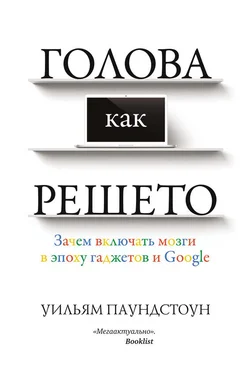

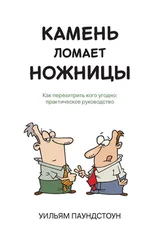


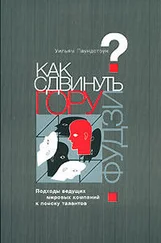

![Джулиан Ассанж - Google не то, чем кажется [отрывок из книги «When Google Met WikiLeaks»]](/books/405461/dzhulian-assanzh-google-ne-to-chem-kazhetsya-otryvok-thumb.webp)
